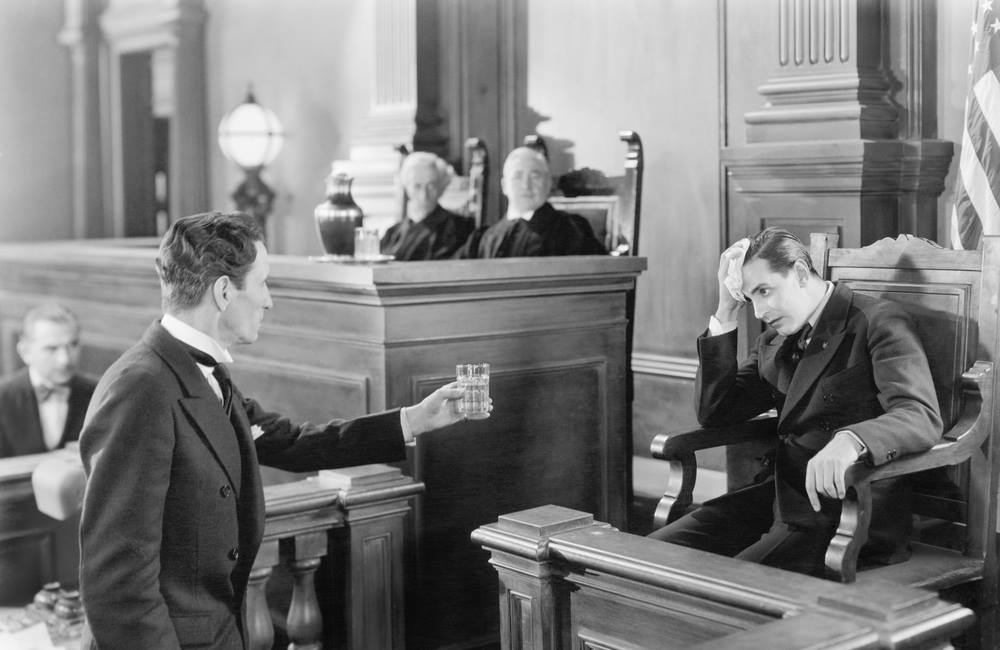The Strange Case of James C. Munch: Demonizing Cannabis
One of the more entertaining marijuana stories floating around the internet involves a government cannabis “expert” who testified in court that smoking marijuana turned him into a bat.
Not Batman, mind you. But an actual bat, with wings.
Is the story true? At least one book and a reputable magazine say that is the case. Research into contemporary news accounts, including New York Times articles from that time, show Dr. James C. Munch, the expert in question, definitely testified about marijuana.
At the very least, marijuana gave him some very strange dreams about living in an ink well for 200 years and bending space and time. He also had some odd ideas about similar drug reactions in dogs and humans that at least one New Jersey judge found ridiculous.
But ultimately Munch is worth learning about not because of the “bat story,” but rather his role in demonizing cannabis in the early 20th century.
Who Was James C. Munch?
Munch had an impressive resume. According to his testimony before a congressional panel considering the Marihuana Tax Act of 1937 – which eventually passed and made cannabis illegal -, Munch was a doctor of philosophy and a graduate of Temple University.
According to his testimony, Munch “majored in toxicology (the action of poisons) and in pharmacology (the action of drugs on animals and on man.)” He also had been consulting for Harry Anslinger, the federal official and first commissioner of the Federal Bureau of Narcotics (FBN) who helped whip up hysteria about marijuana by connecting it to many crimes.
Anslinger, helped by expert testimony from people such as Munch, helped launch the “Reefer Madness” era. Anslinger took some of the most shocking crimes of the era and would then “disingenuously tie them to cannabis,” according to High Times.
That included a case in Tampa, Florida, where a man had killed his family. One of the people to tie his crime to marijuana use was Munch. Munch went on to tie all kinds of criminal activity to marijuana, according to High Times. This includes murder, rape, robbery, and bigamy.
Not surprisingly, Anslinger turned to him often as an expert on the impact of marijuana.
Called In For Murder Trial Testimony
Now that you understand the background, we can move on to the infamous testimony.
By 1938, Munch had already offered testimony before Congress that supported passage of the Marihuana Tax Act, which essentially made cannabis illegal. Anslinger also had used him repeatedly as an expert trying marijuana use to horrifying crimes.
Defense attorneys took note. Munch was called as an expert witness in two murder cases in 1938. In both cases, defense attorneys were looking to use marijuana as a defense, saying the use of cannabis made the defendants commit the crimes.
According to “Reefer Madness: A History of Marijuana” by Larry “Ratso” Sloman, Munch got permission to testify from someone at the FBN. But things didn’t go as everyone expected.
The Ethel Sohl Trial
In 1938, Ethel “Bunny” Sohl and a friend, Genevieve Owens, were on trial for murdering a bus driver, William Barhorst, during a holdup in Belleville, New Jersey. Sohl allegedly pulled the trigger. The pair robbed Barhorst of $2.10. It was the Great Depression.
The trial was held in Newark. The defense of Sohl rested on a claim that she was a victim of “marijuana madness.” The defense called Munch to testify about the impacts of marijuana use at the trial.
Munch told the court he had been “retained by the United States government in marijuana research work,” according to a Feb. 12, 1938, article in the New York Times.
In the course of that work, Munch said he had smoked a “marijuana cigarette” himself. Here’s the exact quote of what he said during his testimony on Friday, Feb. 11, 1938, according to the Times:
“I smoked the cigarette while sitting in a chair. I had a dream. I dreamed that I had lived in an ink bottle for 200 years. Then I climbed to the neck of the bottle and I wrote a book. Then I flew out of the bottle and I flew around the world twice. Then I awakened. I had been asleep in the chair for 16 minutes.”
Nice dream, as Cheech and Chong might say. The Newark Ledger reported an even more trippy version of the testimony, according to “Reefer Madness: A History of Marijuana.” The book quotes the Ledger reporter writing that Munch testified as follows about his marijuana experience.
“Space vanishes. You can walk across the ocean. You can jump from here to the Panama Canal. Things you do seem to be the things you should do. The weakling feels he can fight a prizefighter.”
Munch also tried to testify about his study of the impact of marijuana on dogs, stating that the reaction by dogs is similar to that of humans (he said the same during his 1937 testimony in front of Congress).
Judge Daniel Brennan would have none of it, according to the Times. They reported him as saying: “He’s going to testify about marijuana’s effects on dogs and then say it’s the same as on humans. What kind of testimony is that?”
The prosecutor in the case openly questioned whether Munch was much of an expert considering he was not a physician and was reporting on his own experiences smoking marijuana once.
But Munch was not done with his “expert testimony” on these matters.
The Arthur Friedman Testimony
In April of 1938, Munch again was called in to be an expert witness on marijuana, this time in New York City. He was called by the defense team for Arthur Friedman, one of five youths charged with shooting and killing Detective Michael J. Foley during a robbery of the Boulevard Restaurant at 144 Second Ave.
On April 7, 1938, Munch appeared in court to testify in the Friedman case. He again spoke about being trapped in an ink jar, according to Sloman, who wrote that he essentially repeated his New Jersey testimony word for word.
Did he talk about being turned into a bat? There’s no mention of it by Sloman, but in his book “Cannabis: A History,” Martin Booth wrote that “at one of the trials” Munch testified: “After two puffs on a marijuana cigarette, I was turned into a bat.”
Ultimately, Friedman and many of his fellow robbers received the electric chair. Sohl and Owens got life in prison.
The Power of Propaganda
The aftermath provides a textbook case in propaganda. Sohl was forever tied to marijuana in new articles and advertisements that promoted federal and state laws to criminalize marijuana.
For example, an article in the Nashville Tennessean on April 3, 1938, on the case called marijuana a drug that “drives it’s smokers into murderous outbreaks and destroys the mind.” It calls cannabis as “deadly” as tuberculous and typhoid.
The article further states that marijuana should also have been on trial in the case: “While Ethel and Genevieve are paying their debt to society behind prison walls, their partner in crime will be going its free way, inciting other girls and boys to careers of madness and crime.”
Changing Tactics
Anslinger and James C. Munch quickly realized that his testimony, while providing fuel for propaganda, wasn’t helping things in a legal sense. The two feared further testimony would only embolden attorneys to use cannabis as a defense against murder and other charges.
According to Sloman’s book, Anslinger was enraged. He made Munch stop testifying at murder trials. Munch also issued clarifications on his testimony, including writing in a letter to Anslinger that he did not intend for his words to serve “as a defense for any moron who might want to commit any sort of crime.”
The federal government later amended its take on marijuana to say that it was impossible to predict how it might make people behave, which effectively ended it as a defense for criminals, according to Sloman. Marijuana remains illegal at the federal level to this day.
And while there’s no mention of bats, Sloman did interview Munch in 1978. Munch said he still believed marijuana should remain illegal and that the use of cannabis could cause people such as Sohl to murder someone. He called Anslinger “a very lovely person to work with.”




